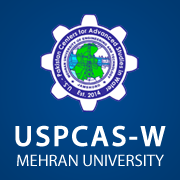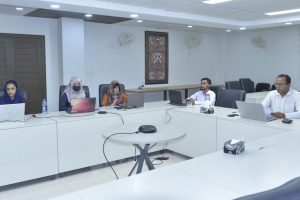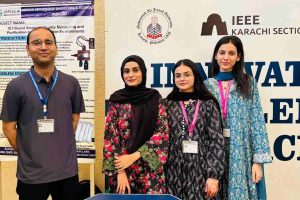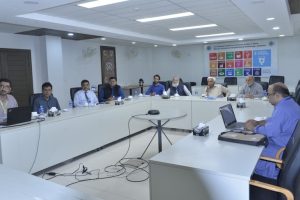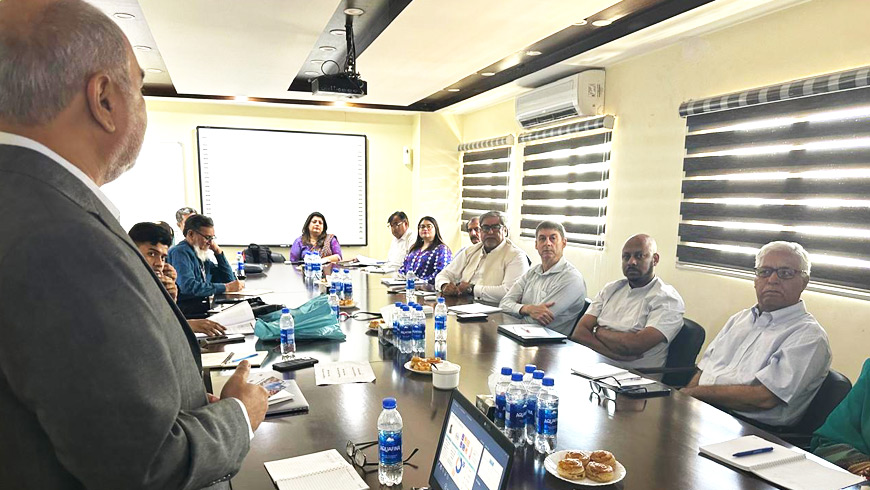
A significant meeting took place in Karachi between the Project Coordination & Monitoring Unit (P&D), the Government of Sindh (GoS), and teams from the U.S.-Pakistan Center for Advanced Studies in Water
A significant meeting took place in Karachi between the Project Coordination & Monitoring Unit (P&D), the Government of Sindh (GoS), and teams from the U.S.-Pakistan Center for Advanced Studies in Water (USPCAS-W), Mehran University of Engineering and Technology (MUET), and the Center for Environmental and Geographic Information Services (CEGIS) from Bangladesh. The meeting aimed to discuss the development of the Hydro-Agro Informatics (HAI) program in Sindh, a critical initiative to revolutionise water and agriculture management in the region.
Prof. Dr Kamran Jan Ansari , Director of USPCAS-W, delivered a comprehensive presentation outlining the development of the Hydro-Agro Informatics program in Sindh. The presentation covered various aspects of the program, including its objectives, methodologies, stakeholder assessment and consultation, design of HAI, scope and goals.
Key officials from both the government and the USPCAS-W attended the meeting. Among them were Mr Greg Browder, Global Lead (Water) TTL SWAT, and Mr Nazeer A. Essani, Project Coordinator of PCMU Unit Sindh, Mr Umar Karim, FAO, Prof. Dr Bakhshal Lashari, Professor Emeritus, Md Motaleb Hossain Sarker, Mr Tanvir Ahmed, Mr Gazi Md Riasat Amin form CEGIS Bangladesh. These officials’ presence highlights the HAI program’s importance and significance in water resource management and agricultural development.
Throughout the meeting, discussions primarily revolved around the future activities of the Hydro-Agro Informatics program. Participants exchanged insights, ideas, and feedback to ensure the program aligned with the goals and priorities. The meeting served as a platform for collaborative efforts between various stakeholders to address the challenges faced by the region in water and agriculture management. Through such strategic partnerships and concerted efforts, it is anticipated that the Hydro-Agro Informatics program will be pivotal in enhancing water security, improving agricultural productivity, and promoting sustainable development in Sindh.

